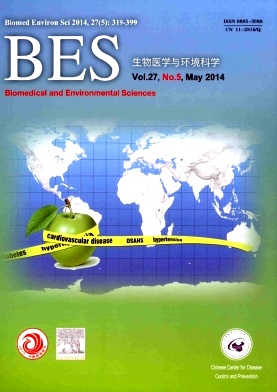Genome Wide Association Study:Searching for Genes Underlying Body Mass Index in the Chinese
doi: 10.3967/bes2014.061
-
Key words:
- Body mass index /
- Genome wide association /
- EIF2AK4 /
- Replication
Abstract: Objective Obesity is becoming a worldwide health problem. The genome wide association (GWA) study particularly for body mass index (BMI) has not been successfully conducted in the Chinese. In order to identify novel genes for BMI variation in the Chinese, an initial GWA study and a follow up replication study were performed.
Methods Affymetrix 500K SNPs were genotyped for initial GWA of 597 Northern Chinese. After quality control, 281 533 SNPs were included in the association analysis. Three SNPs were genotyped in a Southern Chinese replication sample containing 2 955 Chinese Han subjects. Association analyses were performed by Plink software.
Results Eight SNPs were significantly associated with BMI variation after false discovery rate (FDR) correction (P=5.45×10-7-7.26×10-6, FDR q=0.033-0.048). Two adjacent SNPs (rs4432245 &rs711906) in the eukaryotic translation initiation factor 2 alpha kinase 4 (EIF2AK4) gene were significantly associated with BMI (P=6.38×10-6&4.39×10-6, FDR q=0.048). In the follow-up replication study, we confirmed the associations between BMI and rs4432245, rs711906 in the EIF2AKE gene (P=0.03&0.01, respectively).
Conclusion Our study suggests novel mechanisms for BMI, where EIF2AK4 has exerted a profound effect on the synthesis and storage of triglycerides and may impact on overall energy homeostasis associated with obesity. The minor allele frequencies for the two SNPs in the EIF2AK4 gene have marked ethnic differences between Caucasians and the Chinese. The association of the EIF2AK4 gene with BMI is suggested to be‘ethnic specific’ in the Chinese.
| Citation: | YANG Fang, CHEN Xiang Ding, TAN Li Jun, SHEN Jie, LI Ding You, ZHANG Fang, SHA Bao Yong, DENG Hong Wen. Genome Wide Association Study:Searching for Genes Underlying Body Mass Index in the Chinese[J]. Biomedical and Environmental Sciences, 2014, 27(5): 360-370. doi: 10.3967/bes2014.061 |







 Quick Links
Quick Links
 DownLoad:
DownLoad: